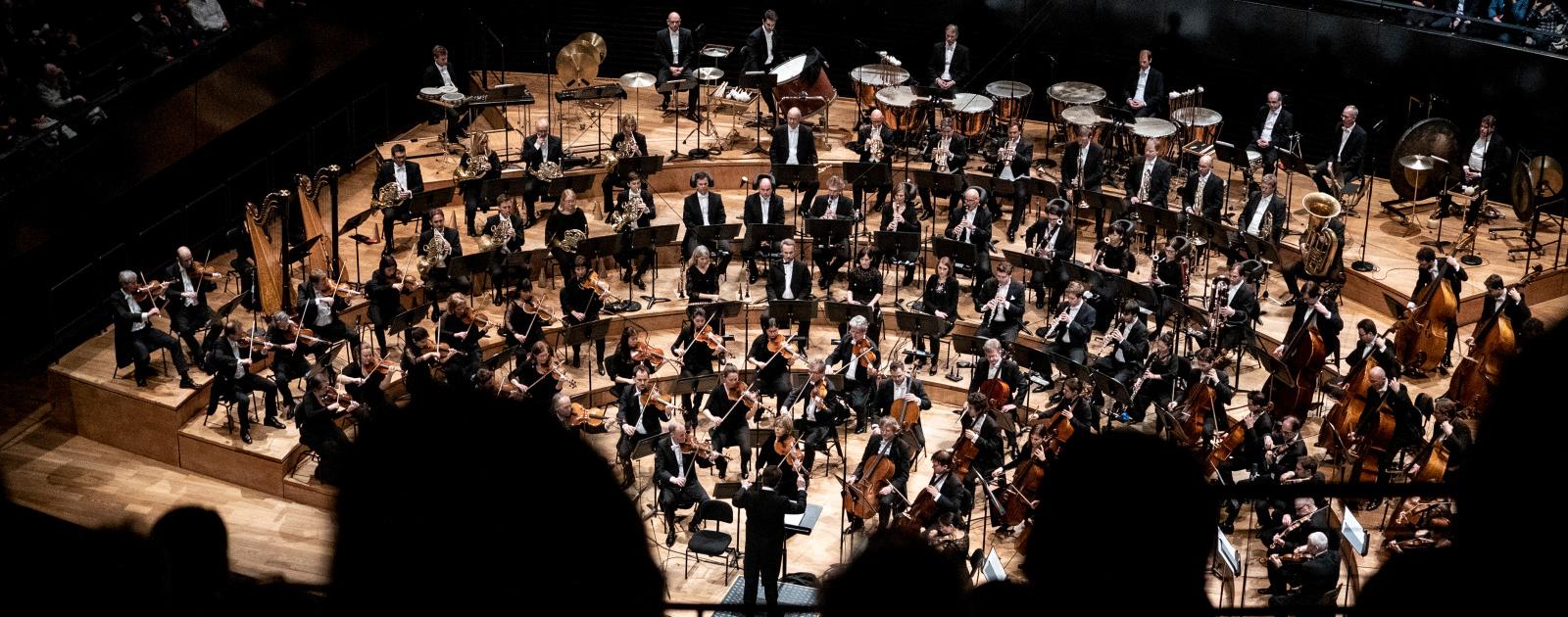Ensemble intercontemporain
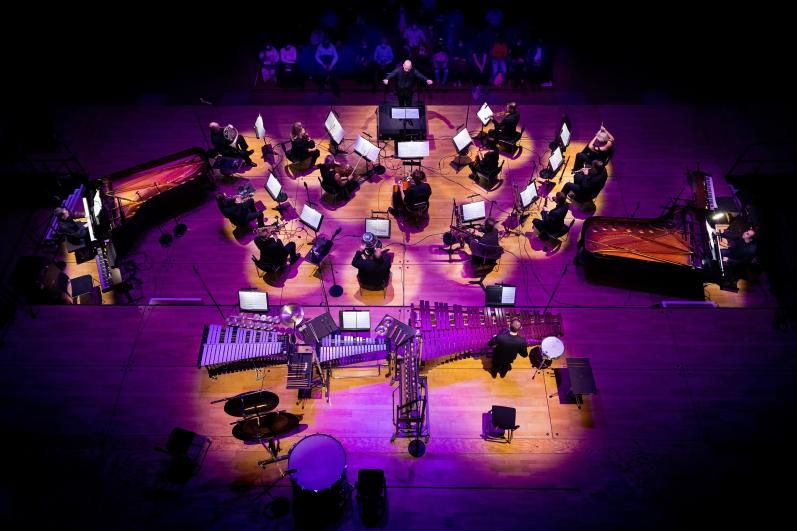 — Ensemble intercontemporain
-
© F.Ferville
— Ensemble intercontemporain
-
© F.Ferville
Under the artistic direction of Matthias Pintscher, the thirty-one solists of the Ensemble intercontemporain continue to explore the music of our time at the Philharmonie de Paris.
In 1976, Pierre Boulez founded the Ensemble intercontemporain with the support of Michel Guy (who was Minister of Culture at the time) and the collaboration and Nicholas Snowman. The Ensemble’s 31 soloists share a passion for 20th-21st century music. They are employed on permanent contract, enabling them to fulfill the major aims of the Ensemble: performance, creation and education for young musicians and the general public.
Under the artistic direction of Matthias Pintscher the musicians work in close collaboration with composers, exploring instrumental techniques and developing projects that interweave music, dance, theater, film, video and visual arts. In collaboration with Ircam (Institut de Recherche et Coordination Acoustique/Musique), the Ensemble intercontemporain is also active in the field of synthetic sound generation. New pieces are commissioned and performed on a regular basis.
The Ensemble is renown for its strong emphasis on music education: concerts for kids, creative workshops for students, training programs for future performers, conductors, composers, etc. Since 2004, the Ensemble soloists have been tutoring young instrumentalists, conductors and composers in the field of contemporary repertoire at the Lucerne Festival Academy, a several week educational project held by the Lucerne Festival.
Based at the Cité de la Musique (Paris) since 1995, the Ensemble performs and records in France and abroad, taking part in major festivals worldwide. The Ensemble has become a resident of the new Philharmonie de Paris in January 2015.
The Ensemble is financed by the Ministry of Culture and Communication and receives additional support from the Paris City Council.
Les Arts Florissants
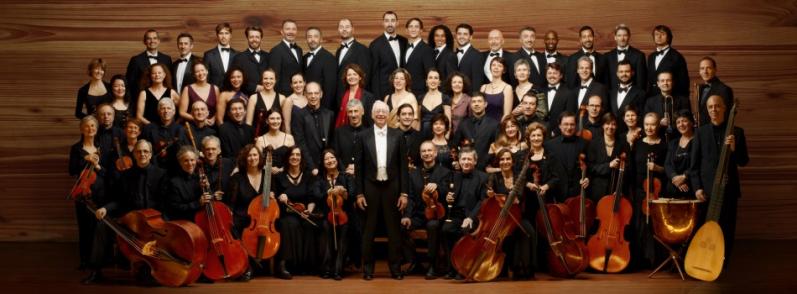 — Les Arts Florissants et William Christie
-
© D.Rouvre
— Les Arts Florissants et William Christie
-
© D.Rouvre
Founded in 1979 by William Christie, Les Arts Florissants has become one of the most internationally acclaimed Baroque vocal and instrumental ensembles.
Specialized in the performance of Baroque music on period instruments, Les Arts Florissants is renowned the world over for having played a pioneering role in the revival of 17th and 18th century Baroque repertoire. Under the baton of William Christie and Paul Agnew, the Ensemble gives around 100 performances and opera performances each year in France and all over the world, with many acclaimed concert or semi-staged performances of operas and oratorios, secular and sacred chamber-music programs as well as large-scale works.
Les Arts Florissants has launched several education programs for young musicians: Le Jardin des Voix, its Academy for young singers created in 2002, and since 2007, the Arts Flo Juniors program for conservatory instrumentalist students and a partnership with The Juilliard School. It also organizes numerous outreach and educational events aimed at building new audiences.
In order to allow everyone to discover its rich repertoire, it has produced an impressive discography of nearly 100 recordings (CD and DVD), especially with the Les Arts Florissants collection in collaboration with Harmonia mundi.
In residence at the Philharmonie de Paris since 2015, Les Arts Florissants develops a strong attachment to the Vendée as well, a region of France where William Christie has made his home. It is indeed in the village of Thiré, where he lives, that the festival Dans les Jardins de William Christie was launched in 2012 in partnership with the Conseil départemental de la Vendée. This place is now set to become the beating heart of Les Arts Florissant’s activities, with several key projects. 2017 is a turning point in this respect, with the settlement of the Jardin des Voix in Thiré, the creation of a Spring Festival directed by Paul Agnew, and the obtention of the French national label « Centre Culturel de Rencontre » for Les Arts Florissants projects in the Département de la Vendée and the Région Pays de la Loire.
Les Arts Florissants receives financial support from the Ministry of Culture, the Département de la Vendée and the Région Pays de la Loire. The Ensemble has been in residence at the Philharmonie de Paris since 2015. The Selz Foundation, American Friends of Les Arts Florissants and Crédit Agricole Corporate & Investment Bank are Principal Sponsors.
L’Orchestre de chambre de Paris
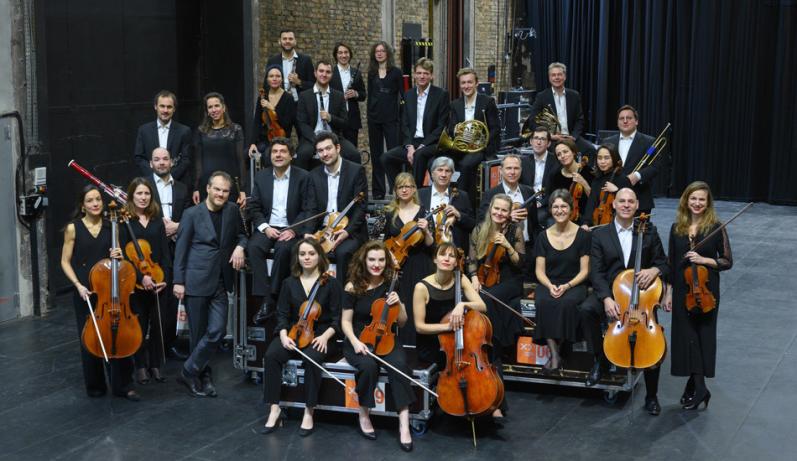 — Orchestre de chambre de Paris
-
© J-B Pellerin
— Orchestre de chambre de Paris
-
© J-B Pellerin
Since it was founded half a century ago, the Orchestre de chambre de Paris has established itself as one of Europe’s foremost chamber orchestras. Through a period of major renewal in recent years, it has incorporated a new generation of musicians that have made it one of the youngest permanent orchestras in France.
Embodying excellence as a Mozart-style ensemble, it boasts a vast repertoire ranging from the 17th century to today, with some 100 premieres to its credit. Its musicians also offer new readings of classical works on early instruments, and through collaborations with conductors specialising in the Baroque and soloists engaged to ‘play and direct’.
The Orchestre de chambre de Paris performs throughout Greater Paris with concerts at the Philharmonie de Paris, where it is a resident ensemble; the Théâtre des Champs-Élysées; Opéra Comique; Théâtre du Châtelet as part of the Place des Théâtres project; and Salle Cortot.
For its season concerts, the Orchestre de chambre de Paris works with leading conductors and soloists, including Antje Weithaas, Christian Tetzlaff, Javier Perianes, Nicolas Altstaedt, Maxim Emelyanychev, Thomas Hengelbrock, Thomas Dausgaard, Gábor Takács-Nagy, Hervé Niquet, Laurence Equilbey, Emmanuel Pahud, Elisabeth Leonskaja and Karine Deshayes. Also travelling beyond the Paris area, the Orchestre de chambre de Paris regularly performs at festivals such as La Roque-d’Anthéron, as well as on international tours.
Since its founding, the Orchestre de chambre de Paris has made around sixty recordings to its credit and more than ninety creations. He continues to highlight a variety of aesthetics and vocal repertoires, including oratorios, the chamber orchestra genre, and modern-day music. It has also developed a strong audiovisual policy, producing numerous recordings for radio, television, and various digital platforms.
As a musical actor engaged in its city, the orchestra has been recognised for its voluntary civic approach that aims to reach all segments of the population, including persons experiencing homelessness or social exclusion. With more than a hundred cultural events each season, its civic approach is rooted in the aim of fostering connection and sharing through music, with a focus on participation and transmission. Of late, this work has given rise to musical creations conceived with people living in shelters and prison inmates. Also deeply invested in continually renewing the relationship with audiences, the orchestra offers a series of participatory and immersive experiences. Through its OCP-Transmission program, it has developed three academies: the Paris Play-Direct Academy, the Young Women Composers Academy, and the Academy for students of the Paris Conservatory (CNSMDP).
The Orchestre de chambre de Paris, recognised by France’s ‘Orchestre national en région’ label, wishes to thank the following for their support: the City of Paris, the French Ministry of Culture (DRAC Île-de-France), its corporate sponsors, and Accompagnato, the Orchestre de chambre de Paris donors circle.
L’Orchestre national d'Île-de-France
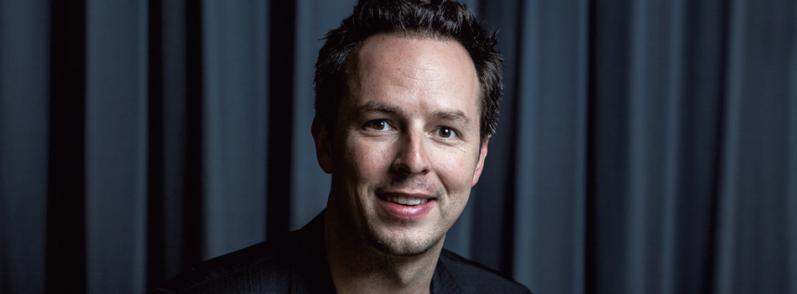 — Case Scaglione, directeur musical de l'ONDIF
-
© C.Urbain
— Case Scaglione, directeur musical de l'ONDIF
-
© C.Urbain
Under the direction of Enrique Mazzola, the Orchestre national d’Île-de-France brings all its energy to the Philharmonie de Paris, pursuing its mission to bring symphonic music to the entire Paris region.
Established in 1974, the Orchestre national d’Île-de-France (ONDIF) is supported the Regional Council of the Île-de-France and the Ministry of Culture and Communication. Its main mission is to bring symphonic music to audiences across the Île-de-France region, with a special concern to reach new audiences.
Made up of ninety-five permanent musicians, the orchestra performs around a hundred concerts each season, offering residents of the Île-de-France a great variety of programmes covering three centuries of music, from the great symphonies to contemporary music, from baroque to today’s diverse musical idioms.
The orchestra is one of the most dynamic national ensembles and was rated in the top 10 most socially engaged orchestras worldwide by the monthly magazine Gramophone. It is a real creative lab, developing a host of ambitious educational schemes such as workshops, opportunities to meet the performers, educational concerts and musical shows.
The orchestra is also actively developing new directions, and has created around a hundred contemporary works over the last fifteen years, as well as a festival, ‘Île de découvertes’ and a composition competition, ‘Île de créations’, which will be running its second edition in 2014.
Yoel Levi, who served as chief conductor of the ensemble during seven prolific seasons, considerably strengthened the orchestra’s standards of quality and its musical cohesion. In 2012, the dynamic and innovative conductor Enrique Mazzola was, in turn, appointed music director, bringing fresh artistic ambitions to the ensemble.
The Orchestre national d’Île-de-France — one of the Philharmonie de Paris’s associate ensembles — is funded by the Regional Council of the d’Île-de-France and the Ministry of Culture and Communication.
Partner ensembles
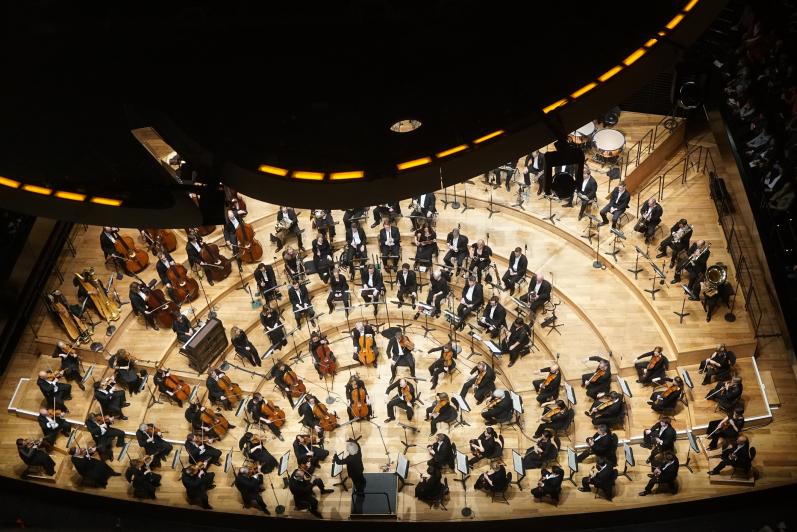 — London Symphony orchestra dans la Grande Salle Pierre Boulez
-
© C.d'Hérouville
— London Symphony orchestra dans la Grande Salle Pierre Boulez
-
© C.d'Hérouville
The orchestras, ensembles and artists who made the programming at the Cité de la musique and the Salle Pleyel so excellent continue to shine at the Philharmonie – an illustrious new setting for both French musical culture and prestigious ensembles from around the world.
The Philharmonie de Paris is an international presence, and a special destination for the best orchestras in the world, which are among its regular guests of honour. At the Philharmonie, one can take in a concert by the London Symphony Orchestra, the Royal Concertgebouw Orchestra of Amsterdam, the Budapest Festival Orchestra, the Brussels Philharmonic, the Chamber Orchestra of Europe or the Berliner Philharmoniker, and others such as the Mariinsky Theatre Symphony Orchestra, the New York Philharmonic, the Simón Bolívar Symphony Orchestra of Venezuela or the West-Eastern Divan Orchestra.
Finally, other French orchestras (such as those of Toulouse, Lille and Lyon, Les Siècles, Les Dissonances, the Orchestre Philharmonique de Radio France, the Chambre Philharmonique or the Orchestre du Conservatoire de Paris), large Baroque ensembles (Les Musiciens du Louvre, Le Concert Spirituel, the Akademie für Alte Musik Berlin or the English Baroque Soloists) and the Accentus chamber choir founded by Laurence Equilbey, all add to the vibrancy of the Philharmonie.
